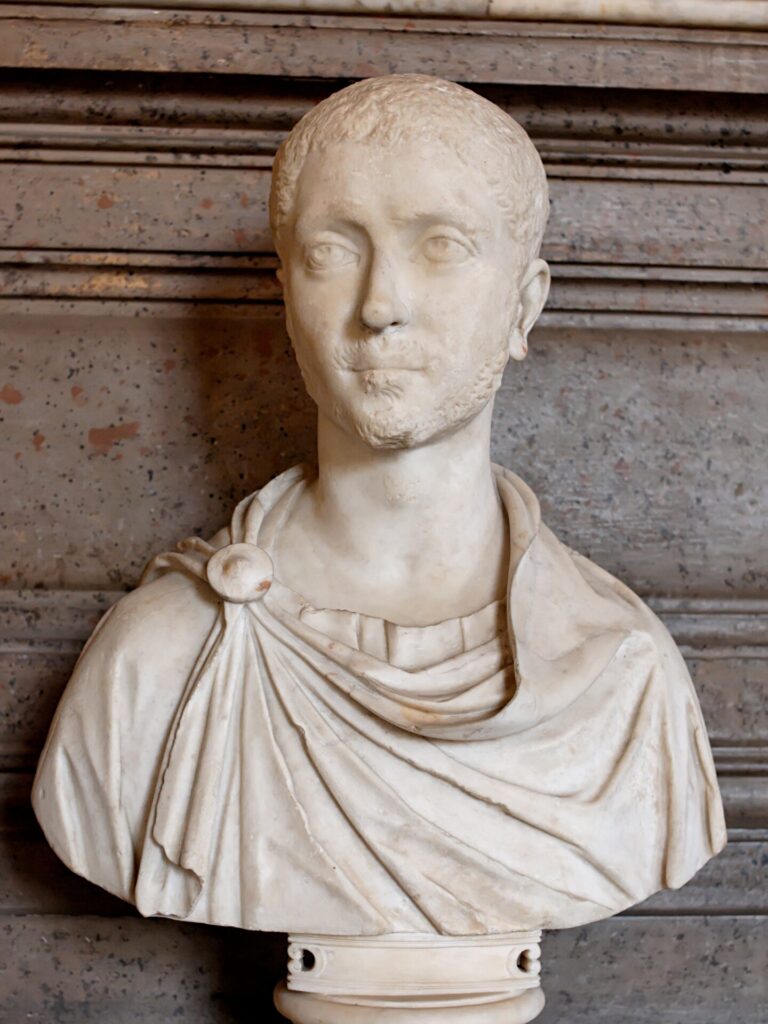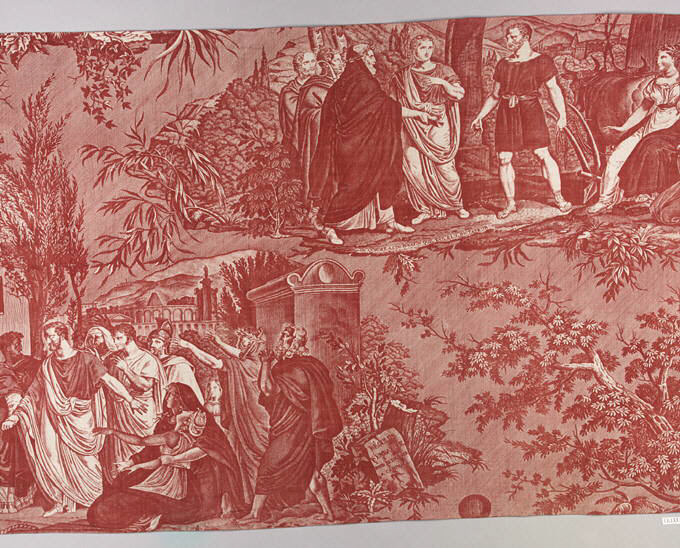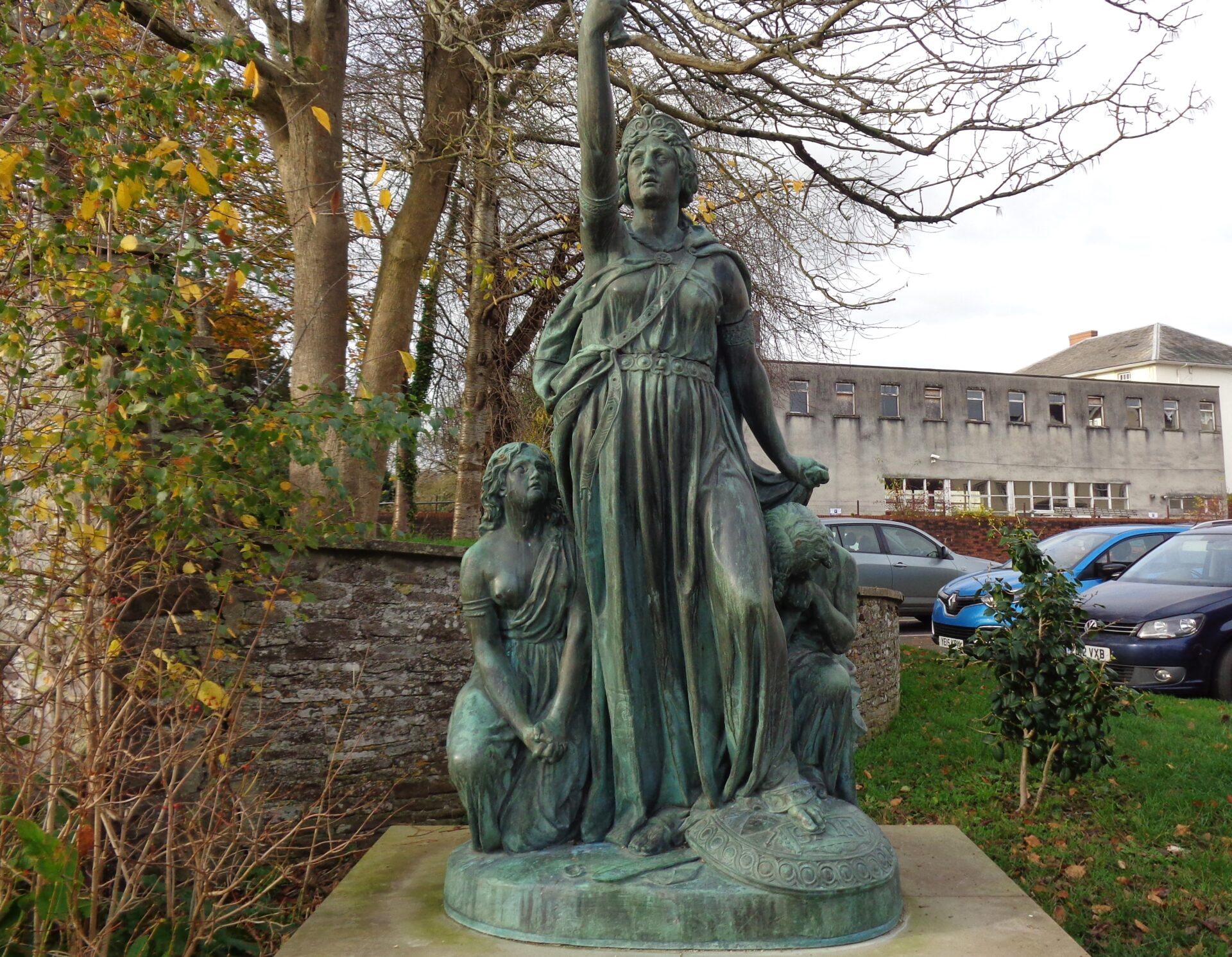Introduction: The Voice of an Empire
Among the many historians of ancient Rome, Cassius Dio holds a special place. He wasn’t a writer who read and worked with old records—he was a high-ranking senator, a governor, and a man who spent decades at the heart of imperial power. He was a witness to the story. His monumental work, Roman History, is one of the most comprehensive sources we have about Rome’s transformation from Republic to autocracy.
Writing in Greek, Dio provided a rare and detailed chronicle of Roman politics, warfare, and leadership, spanning nearly a millennium of history. Through the lens of someone who had seen the empire from within, he delivered not only a narrative of events but also a judgment on the character of emperors and the health of the Roman state.

Life and Career of Cassius Dio in Imperial Rome
Cassius Dio Cocceianus was born around 165 AD in Nicaea, a prosperous city in the Roman province of Bithynia, in today’s Turkey. Although Greek by heritage and language, he was firmly part of the Roman political elite. His father, Cassius Apronianus, was a senator and possibly a governor, and Dio naturally followed in his footsteps.
Over the course of his career, Dio served as a senator, a two-time consul, and a provincial governor. His administrative service took him to various corners of the empire, from Africa to Dalmatia and Pannonia. Notably, he was appointed consul in 229 AD by Emperor Alexander Severus. His access to imperial circles gave him a unique vantage point: he witnessed court intrigues, senatorial debates, and the shifting fortunes of emperors up close.

Cassius Dio was no passive observer. He was also a survivor of turbulent times. He lived through the erratic reigns of Commodus and Caracalla, witnessed the short-lived Severan revival, and served under emperors who sometimes viewed senators with suspicion. His political experiences would deeply inform his historical writing.
The Roman History: A Monumental Work
Cassius Dio’s Roman History was no small project. It consisted of 80 books and covered Roman history from the mythical arrival of Aeneas in Italy to Dio’s own time. Although written in Greek, it was aimed at the educated elite of the eastern provinces, who shared Roman citizenship and cultural curiosity but also a Greek heritage.
The early books of the Roman History, which deal with the legendary and Republican periods, survive only in fragments or through Byzantine summaries, particularly the epitome compiled by the 11th-century monk John Xiphilinus. However, large parts of the later books, especially those dealing with Julius Caesar, Augustus, and the imperial period, remain intact. These sections are among the most valuable for scholars studying the Roman Empire, as Dio combines firsthand political insight with detailed descriptions of major events.
Cassius Dio’s history is not just a record of battles and laws. He organizes events with a focus on cause and consequence. He includes reconstructed speeches, moral reflections, and character portraits that echo the Greek historiographical tradition of Thucydides and Polybius. When writing about Julius Caesar, for example, Dio not only describes his assassination, but he also dives deep into the political tensions and personal motives that made it inevitable.
The sheer ambition of his work is unmatched among ancient Roman historians. Unlike Suetonius, who focused on the lives of emperors, or Tacitus, who zeroed in on the early Empire’s corruption, Dio aimed to tell the whole story, from myth to the imperial bureaucracy he knew intimately.

Cassius Dio’s Style and View of History
Cassius Dio’s writing style is methodical and restrained. He was less colorful than Suetonius and less cynical than Tacitus, but his tone conveys deep concern for Rome’s decline. Like many elite Romans of his time, Dio believed that the Republic had virtues worth preserving and that the concentration of power in imperial hands had come at a moral cost. Cassius Dio’s use of speeches—often invented in the tradition of ancient historiography—allowed him to explore the motivations and conflicts of key figures. Through these devices, he examined not just what happened, but why, and what it revealed about human nature and political systems.
One recurring theme in his work is the danger of tyranny and the erosion of traditional Roman values. He admired capable rulers like Augustus and Trajan but was harsh in his judgments of emperors such as Commodus and Caracalla. In his account of Augustus’s reign, for instance, Dio acknowledges the peace and stability the first emperor brought but also notes the quiet death of the Republic. This balanced critique shows a historian wrestling with the paradoxes of power.
Dio also understood the machinery of the empire—the courts, the provinces, the Senate, the army—in a way few other writers could. His practical experience lent authority to his observations. He knew how decisions were made behind the scenes and how propaganda shaped public perception.
Legacy and Modern Importance
In the Byzantine world, he was considered an essential historian. His books were excerpted, summarized, and used as school texts. In the Renaissance and Enlightenment periods, European scholars rediscovered Dio and valued him as a sober voice from antiquity. Modern historians rely on Dio for a multitude of topics: the final years of the Republic, the civil wars, the reigns of Augustus, Tiberius, and Nero, the Batavian revolt, and more. His descriptions of public ceremonies, military campaigns, and Senate proceedings often provide details found nowhere else.
One example is his magnificent description of Boudica’s revolt in Britain, which remains one of the most dramatic and detailed narratives of the event. Another is his portrayal of Julius Caesar’s assassination, where Dio provides not only the scene in the Senate but the background tensions that led to the crisis. Despite writing in Greek, Dio was one of the most “Roman” voices of his time. He believed in order, discipline, and the responsibilities of leadership. His anxieties about corruption, imperial excess, and political instability resonate across the centuries.

Source: Rosser1954, CC BY 4.0 https://creativecommons.org/licenses/by/4.0, via Wikimedia Commons
Today, his work is still quoted in academic publications, featured in documentaries, and read by students of history worldwide. He is not always the most dramatic or humorous of Roman historians, but he is one of the most serious—and sometimes, the most honest.
Why Cassius Dio Still Matters?
Cassius Dio was not a man of the margins. He was at the heart of Roman imperial life, a senator who rubbed shoulders with emperors and governed distant provinces. Yet he took the time—decades, in fact—to reflect on the long arc of Roman history and preserve it for future generations.
His Roman History is not just a record of names and dates. It is a meditation on the costs of power, the fragility of political systems, and the legacy of leadership. In Dio’s hands, history becomes not only a chronicle but a cautionary tale. Whether writing about the idealism of the Republic, the cunning of Augustus, or the madness of Caracalla, he reminds us that empires rise and fall not only through war, but through the character of those who govern them.
In a world where history is often rewritten or ignored, Cassius Dio offers something rare: a thoughtful, detailed, and deeply informed account of one of humanity’s greatest political experiments. For anyone seeking to understand Rome—and perhaps politics itself—his voice is still worth hearing.
Hello, my name is Vladimir, and I am a part of the Roman-empire writing team.
I am a historian, and history is an integral part of my life.
To be honest, while I was in school, I didn’t like history so how did I end up studying it? Well, for that, I have to thank history-based strategy PC games. Thank you so much, Europa Universalis IV, and thank you, Medieval Total War.
Since games made me fall in love with history, I completed bachelor studies at Filozofski Fakultet Niš, a part of the University of Niš. My bachelor’s thesis was about Julis Caesar. Soon, I completed my master’s studies at the same university.
For years now, I have been working as a teacher in a local elementary school, but my passion for writing isn’t fulfilled, so I decided to pursue that ambition online. There were a few gigs, but most of them were not history-related.
Then I stumbled upon roman-empire.com, and now I am a part of something bigger. No, I am not a part of the ancient Roman Empire but of a creative writing team where I have the freedom to write about whatever I want. Yes, even about Star Wars. Stay tuned for that.
Anyway, I am better at writing about Rome than writing about me. But if you would like to contact me for any reason, you can do it at contact@roman-empire.net. Except for negative reviews, of course. 😀
Kind regards,
Vladimir
